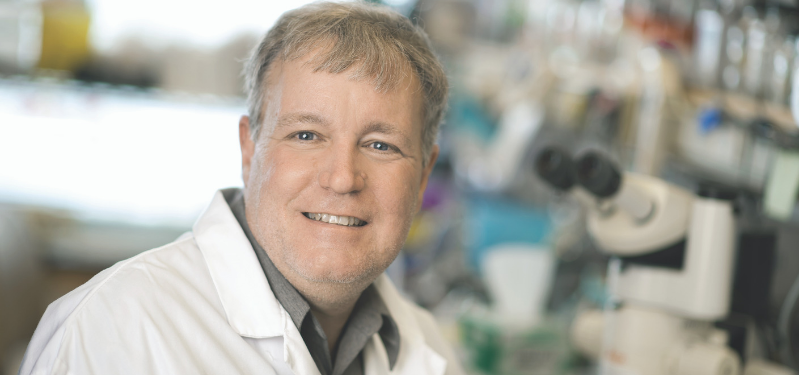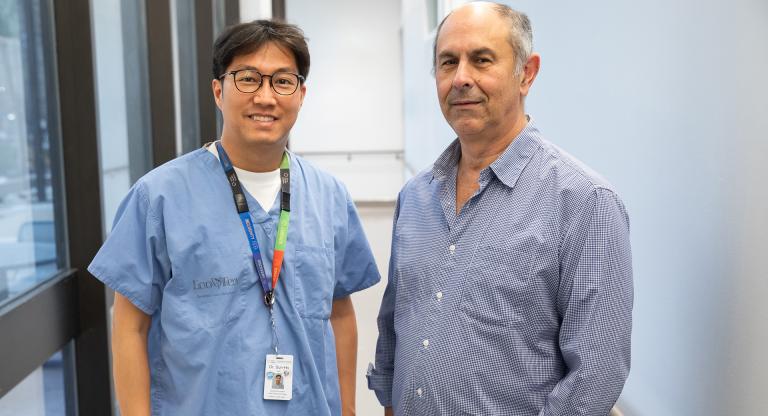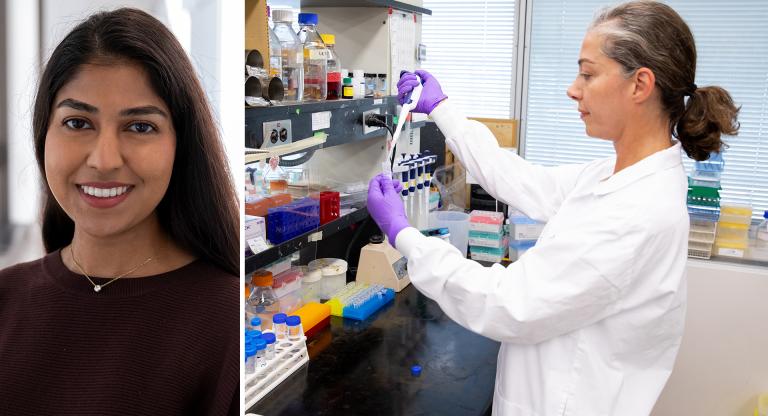Dr. Jeff Wrana and team follow a gut feeling and discover a new type of stem cell

A new type of cell has been discovered in the intestinal lining, named the “revival stem cell”. Dr. Wrana, who is a Senior Scientist at the Lunenfeld-Tanenbaum Research Institute (LTRI), and a team of researchers have found the revival stem cell plays a central role in the regenerative process in the intestine.
The lining of our intestine suffers a hostile environment and turns over at an enormous rate to maintain its health. This turnover is driven by multipotent adult stem cells,which constantly renew themselves. But when tissue in the intestine is damaged, for example, through infection, poisons or radiation, those stem cells are amongst the first to die. So how does the gut regenerate itself after injury if its source of replacement cells is gone? Using single cell analysis, Dr. Wrana and his team discovered a very rare cell population that springs to life after injury.
Through this analysis, Dr. Wrana and his team, spearheaded by the lead author, Dr. Arshad Ayyaz, a postdoctoral fellow, and Dr. Alex Gregorieff, now at McGill University, discovered a new cell type they call a revival stem cell. This cell is responsible for creating new adult stem cells when the intestinal lining is damaged and functions to rebuild the intestinal lining. The revival stem cell is incredibly rare and is only active for about 24 hours, likely explaining why it has been missed before. This exciting finding was published in the latest issue of Nature.
“By applying the same single cell technologies in other tissues, we could discover more of these cells in different tissues and develop therapeutic strategies to more effectively mobilize them in tissues with limited regenerative capacity,” says Dr. Wrana. “It also provides new insights into Inflammatory Bowel Disease and what goes wrong in the intestine, leading to better understanding and ultimately treatments of the disease.”
“Jeff is being characteristically coy about this work,” noted Dr. Jim Woodgett, Director of Research at the LTRI. “He and his team have solved a perplexing mystery that may well be key to understanding chronic pathologies associated with stem cell depletion, not to mention the true “keeper of the flame” cell type for tissue regeneration.”
This work was funded by the Canadian Institutes of Health Research and Sinai Health Foundation.












